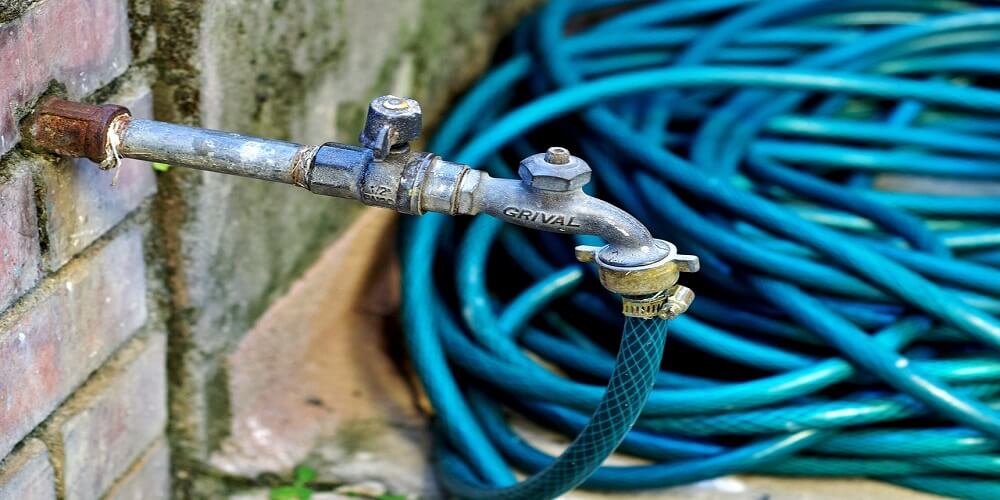Have you ever thought about purifying the water from the garden hose through a water hose filter? Chances are you have not given a thought about it.
The water hose is a versatile home tool. It is used to water the lawn or garden, clean cars or boats, give drinking water for pets, provides water for the kiddie pool, and sometimes people even drink out of it on a hot summer day. With all these, you should be asking yourself if the water is safe.
Unfiltered hose water can contain heavy metals, minerals, and even chemical compounds. These can affect the health of your kids and pets, damage the paintwork on your cars and boats, and can affect the crops and plants that you grow. You should be concerned about the state your hose water is in.
What is a water hose filter?
A hose filter removes harmful elements from the water such as chlorine, heavy metals, minerals, VOCs, and chloramines.
You can filter your hose water using a garden hose filter or an inline water filter. The garden hose filter is attached directly to the tap. The inline water filter is attached at the end of the hose.
Is hose water the same as tap water?
Generally, they are the same. The water you get through the hose and the tap comes from the same underground pipes. If your water source is from the public water supply, this would mean that the water has been treated. The public water supply usually contains fluoride and chlorine to make the water safe for drinking.
Even so, tap and hose water may still contain a high mineral content especially if you have rusty pipes or lead fittings. The material of the water hose can also affect the safety level of the water.
Tips to reduce the risks
Let the water flow first
The worst contaminated part of the water comes from the water that has been in the hose for a while. So, you should let the water run for a while, keep into consideration the length of your hose. This will reduce the number of toxins that may be in the water.
Store the water hose properly
The ideal storage place is a cool and dark area. The longer your water hose is exposed to sunlight and warm temperatures, it weakens the material of the hose, which can release chemicals into the water it emits. The best way to store your water hose is a retractable reel with a durable case.
Avoid brass fixtures
Most outdoor plumbing fixtures are made out of brass and they usually contain lead. Brass fixtures are also not regulated to emit water that is safe for drinking. If you know you have brass fixtures, make sure you use a water hose filter and let the water run first before using.
Discourage drinking from the hose
Even if your hose says it is safe for drinking, make it a choice to discourage family members from drinking out of it. If you know you will be outdoors for a long time because you will do some gardening or cleaning, make sure you bring a water bottle to help you be hydrated.
